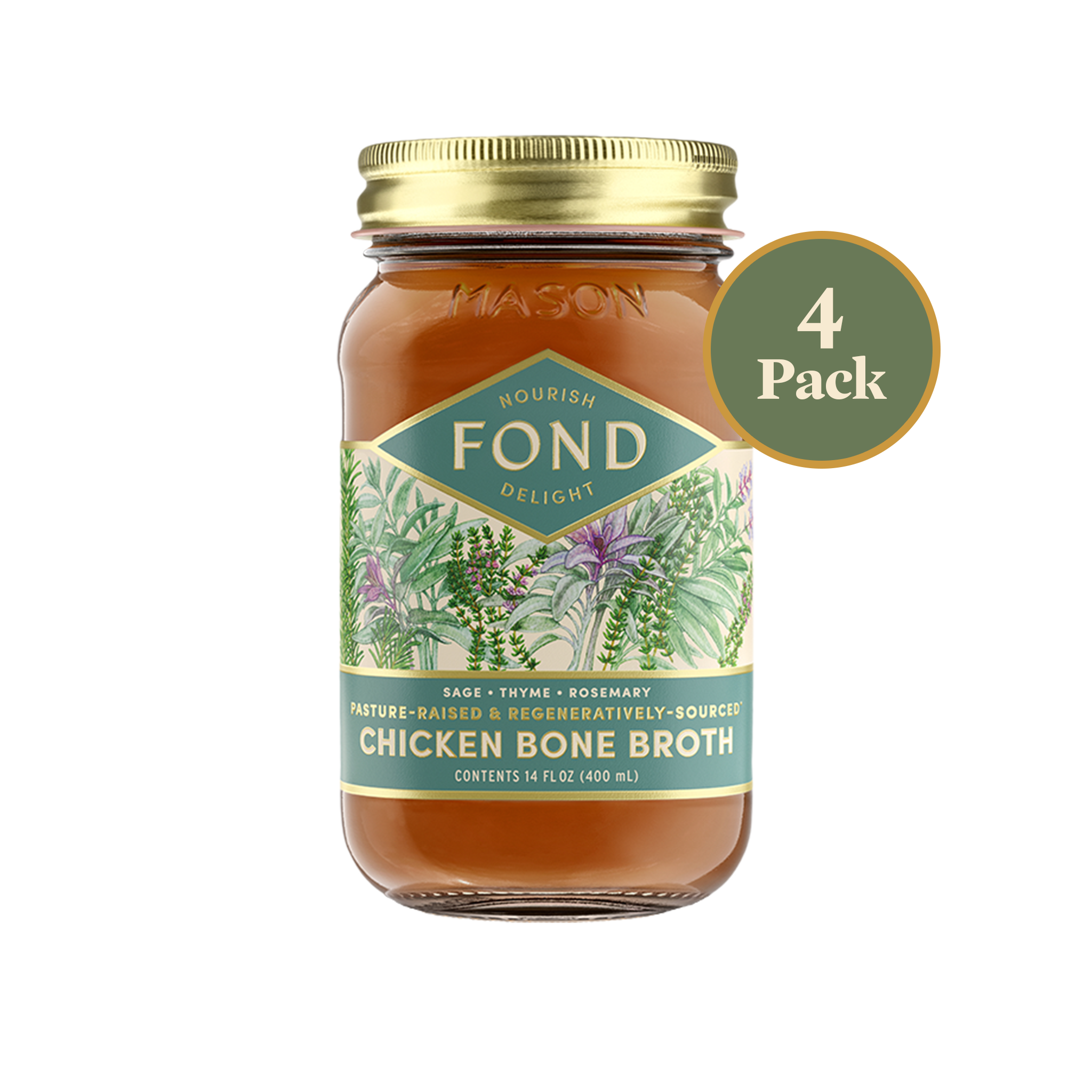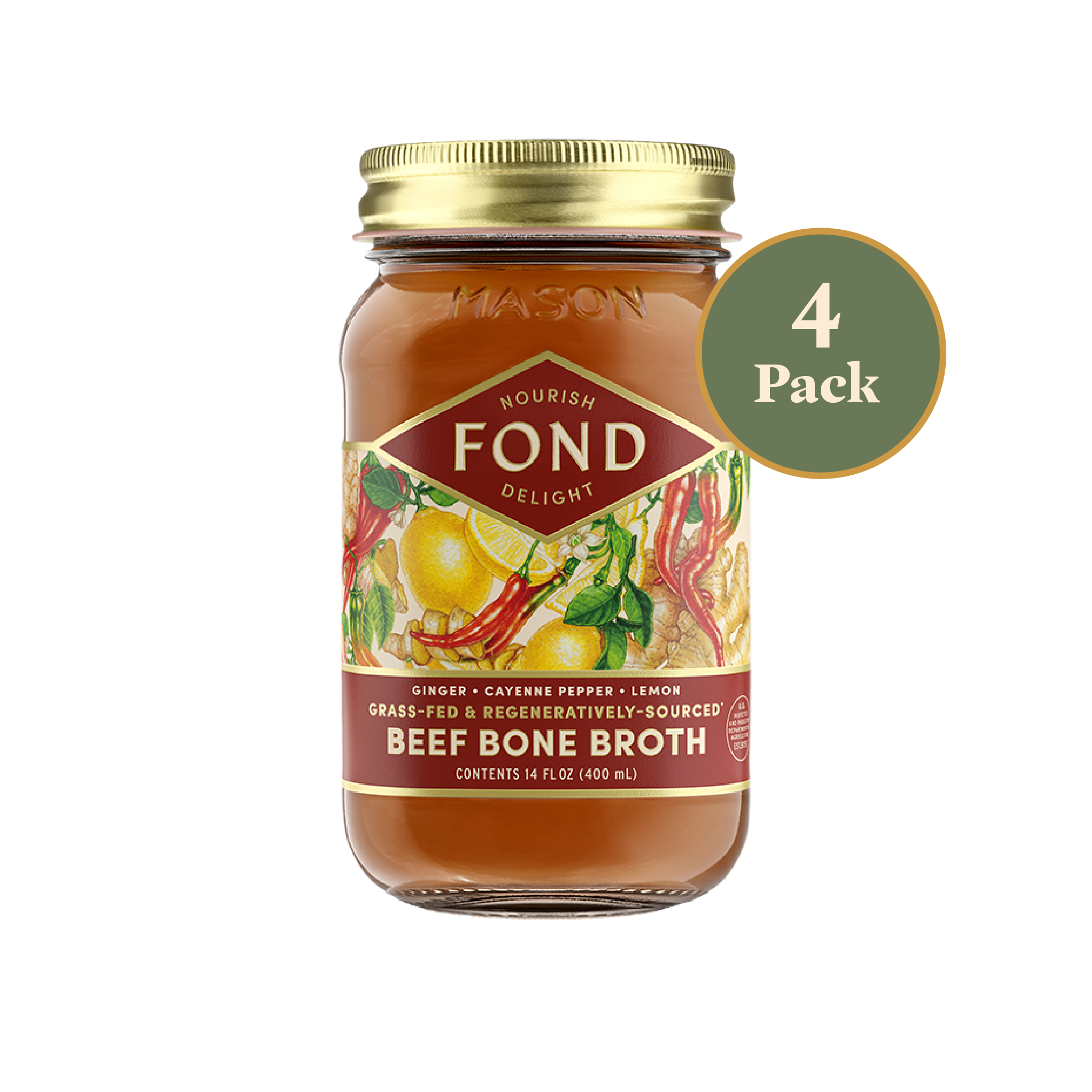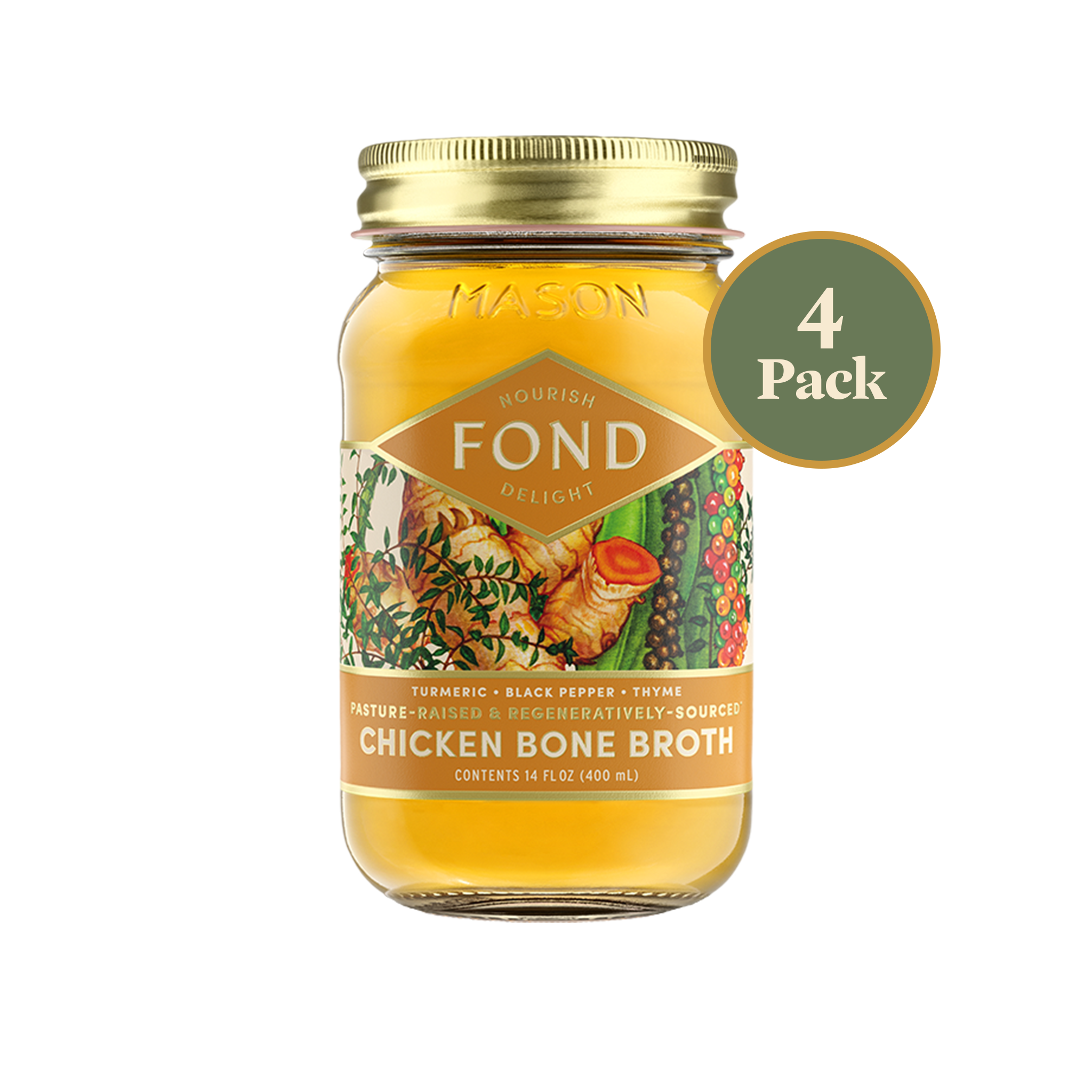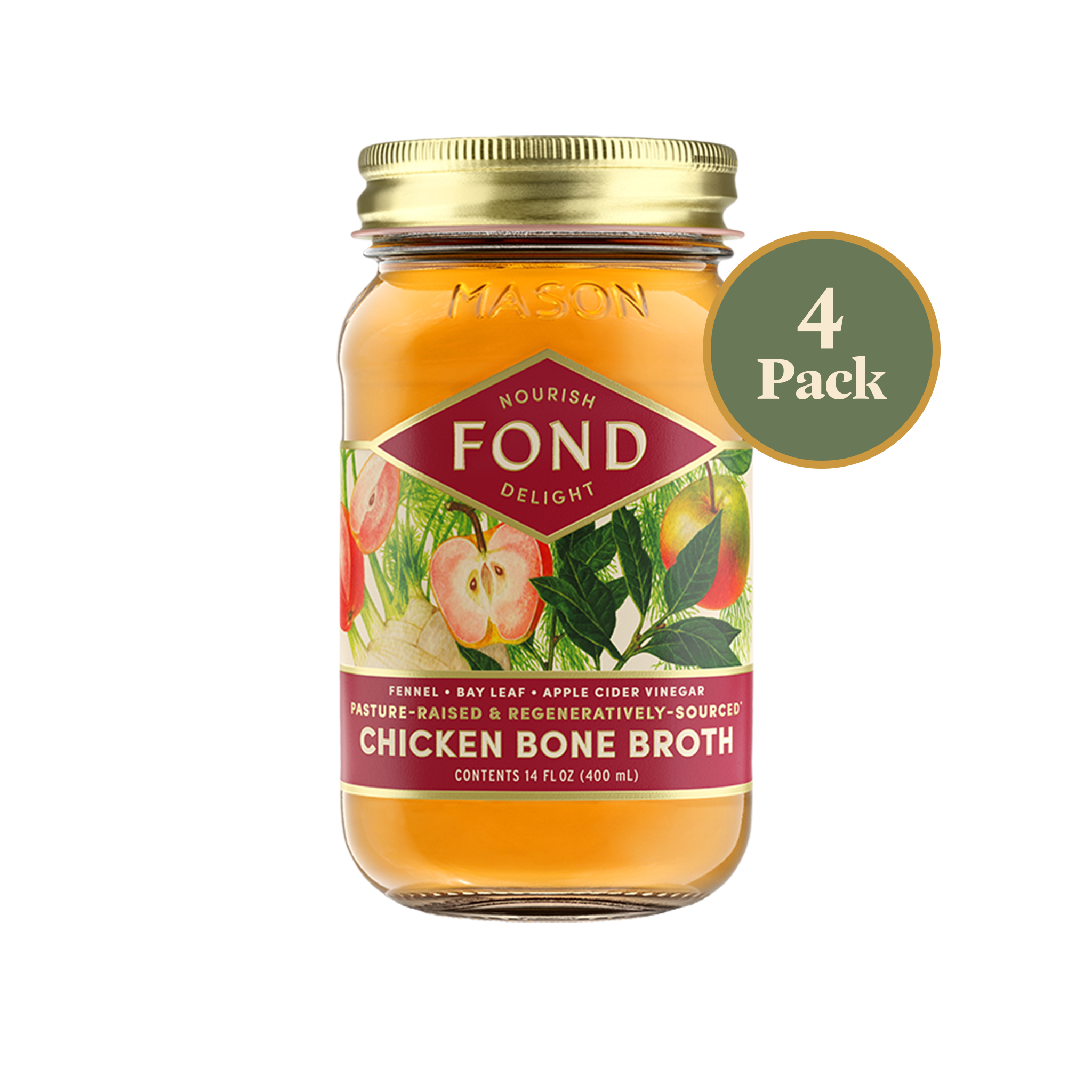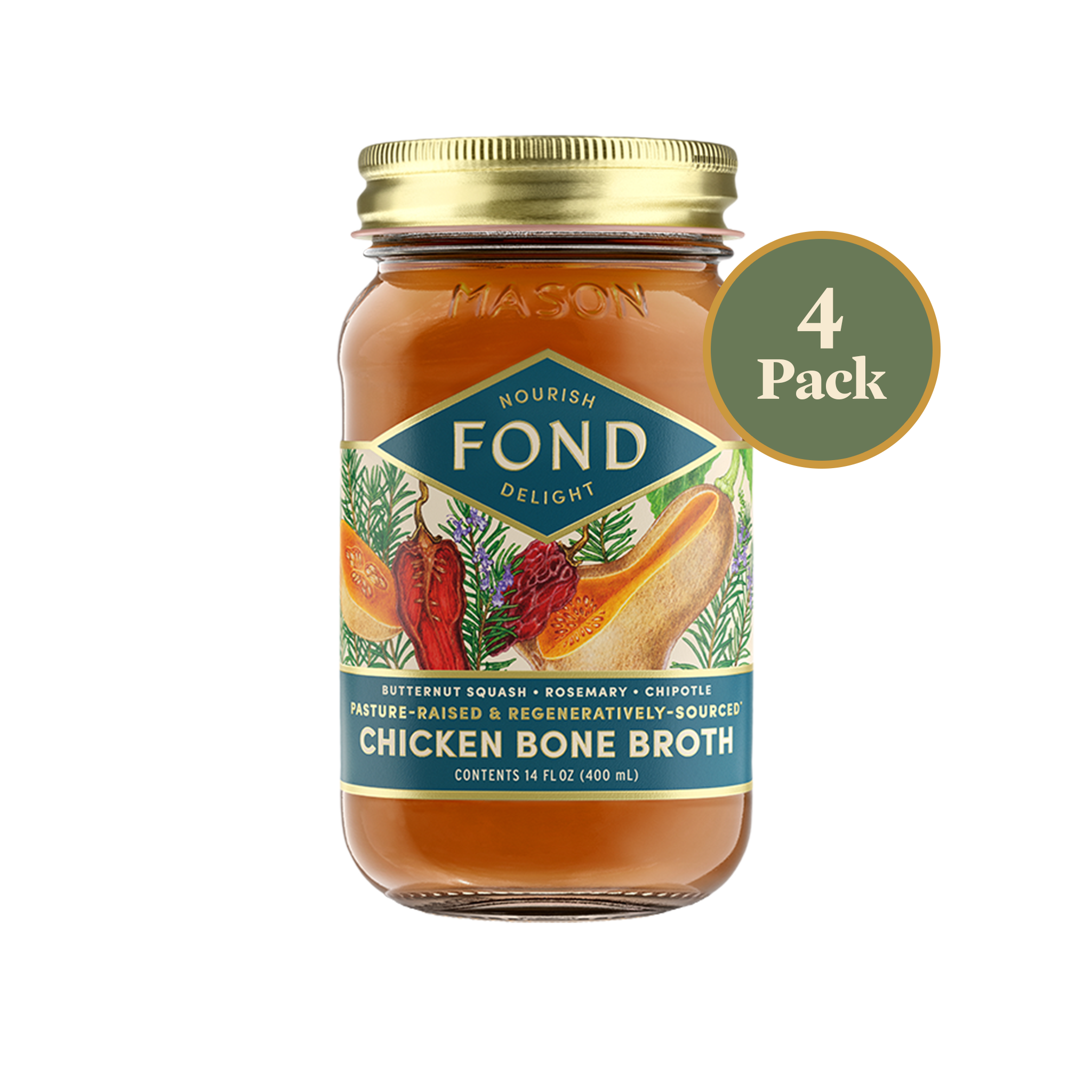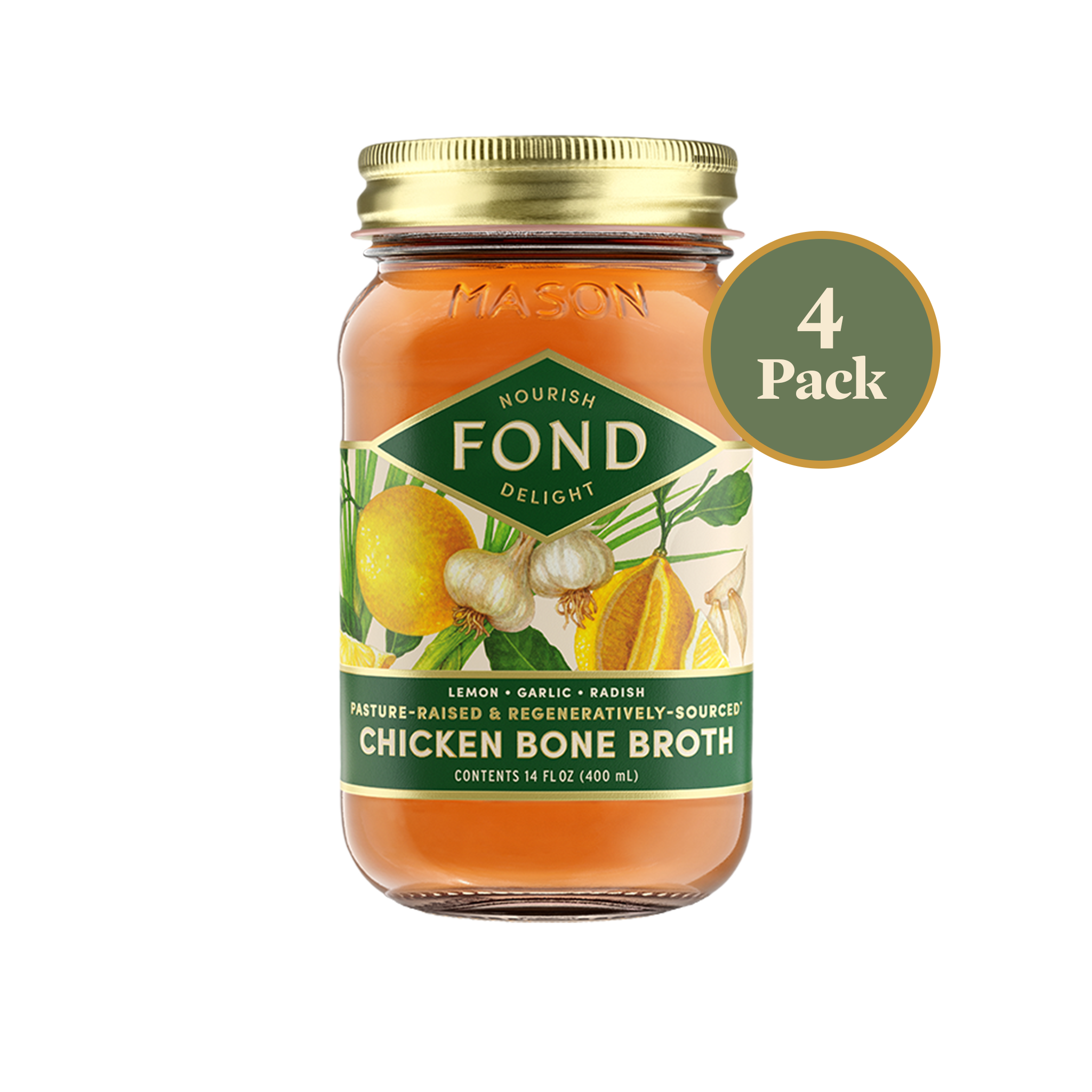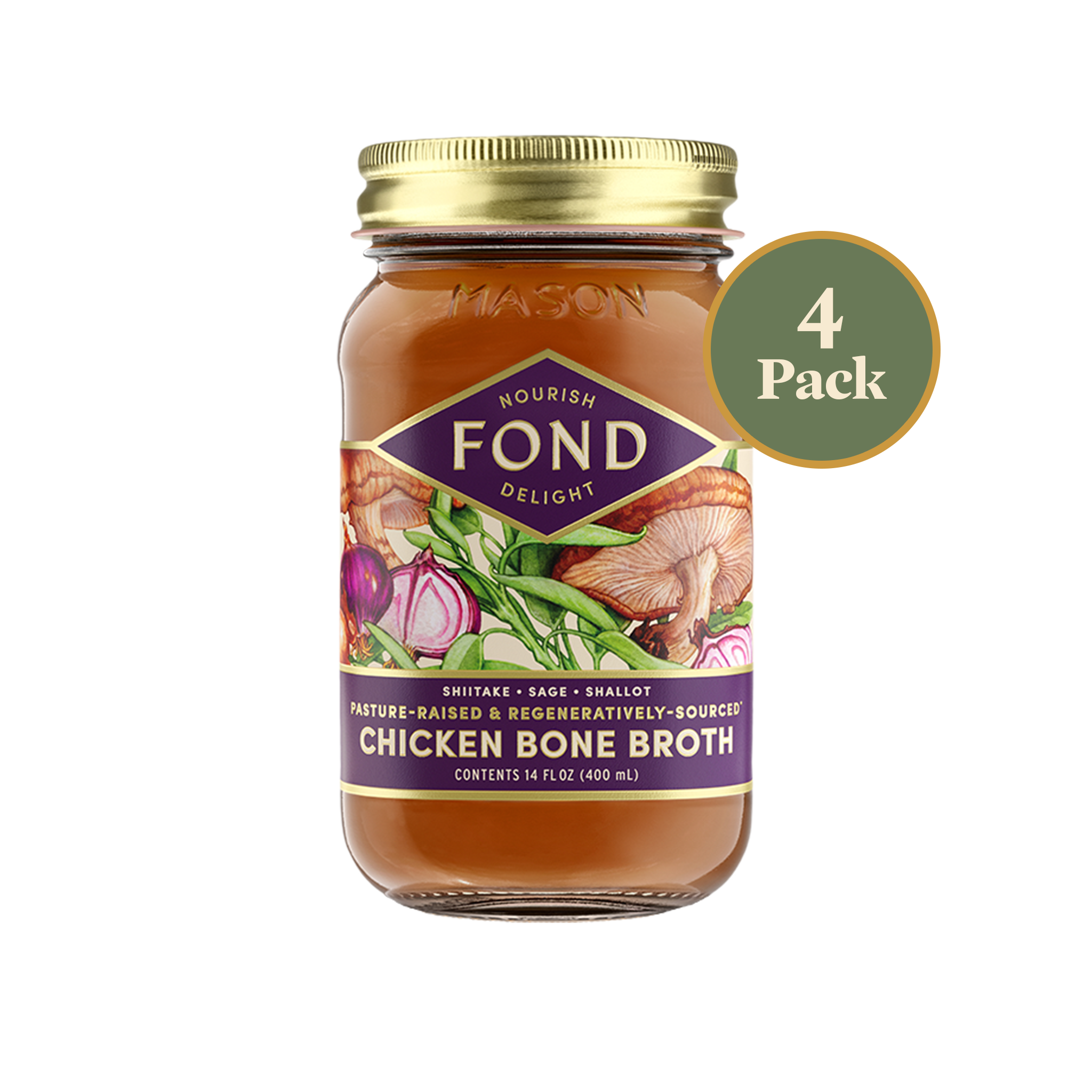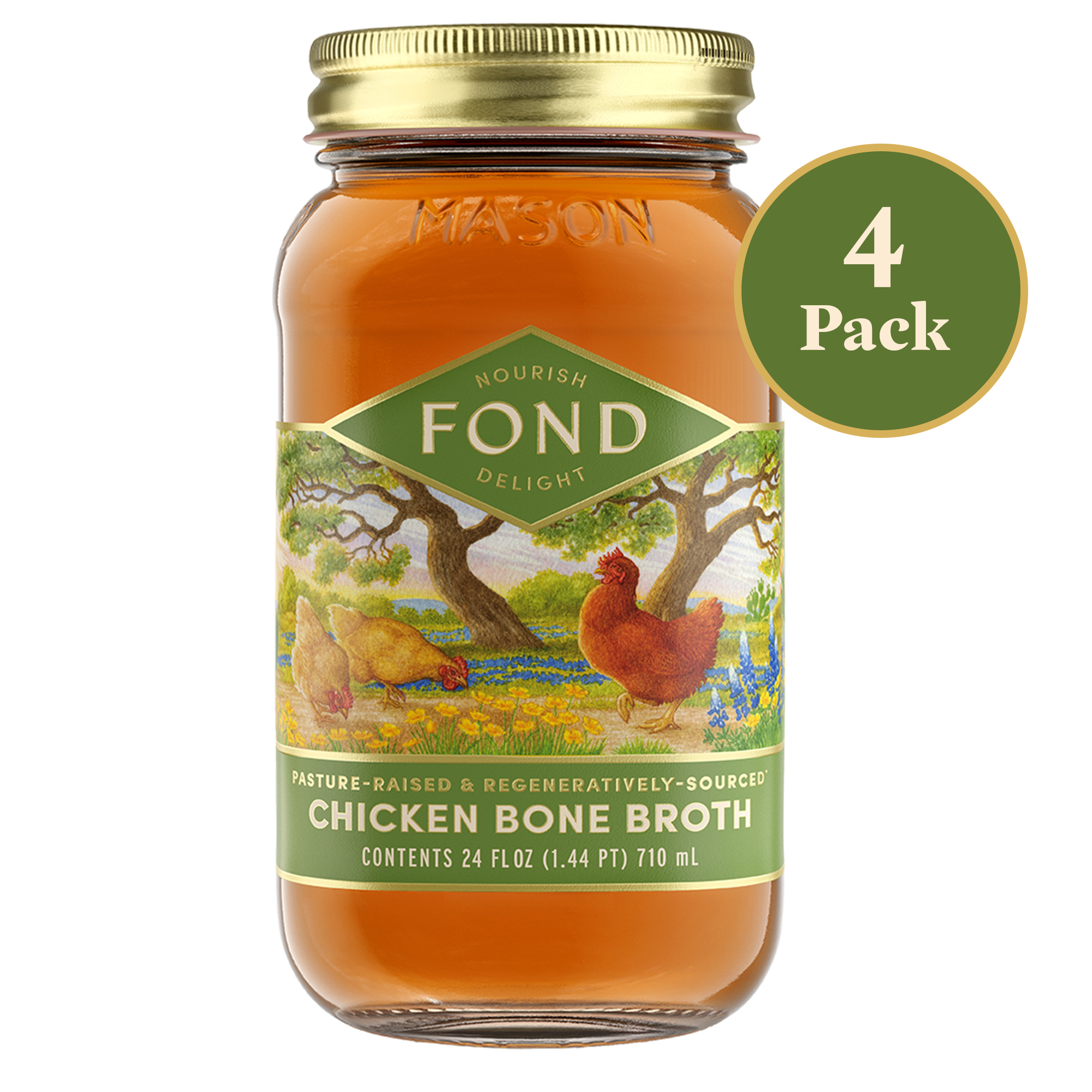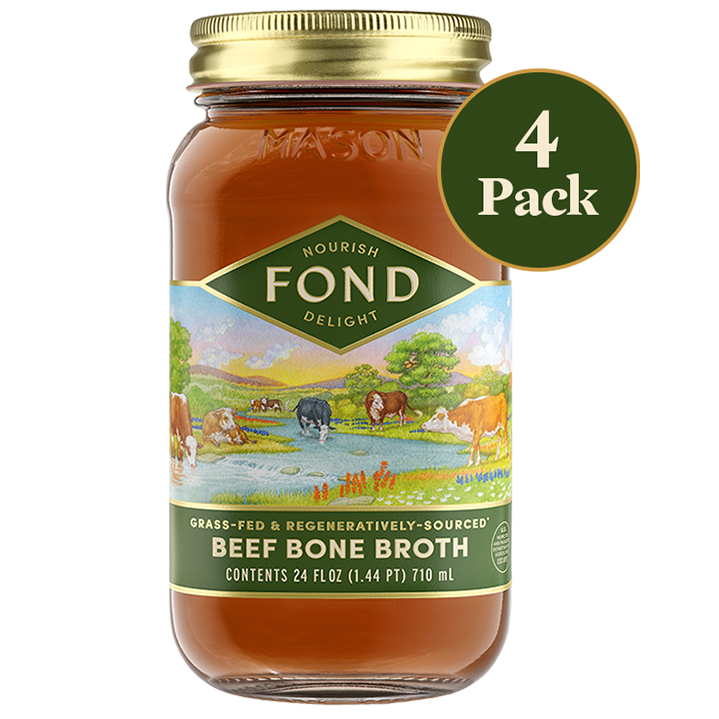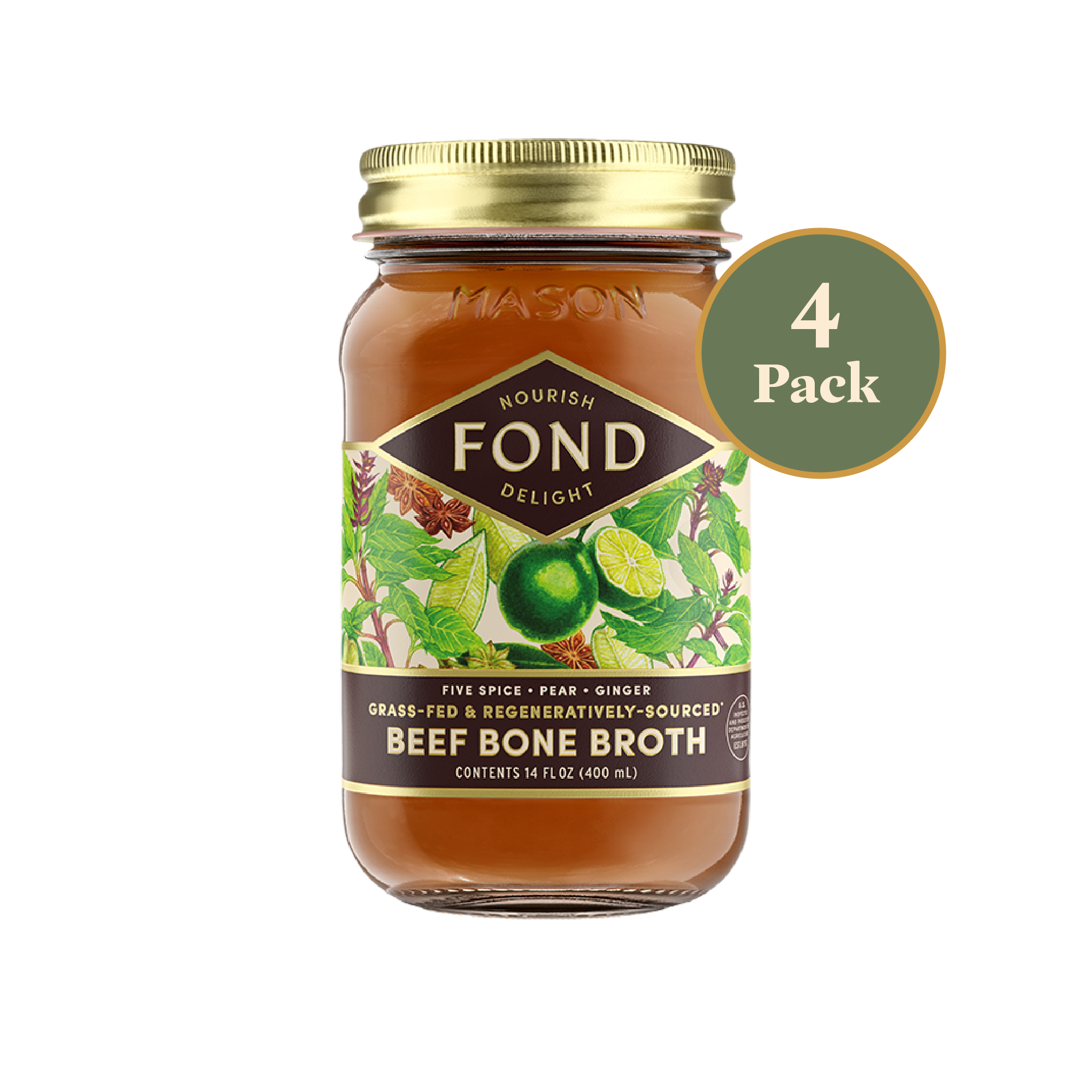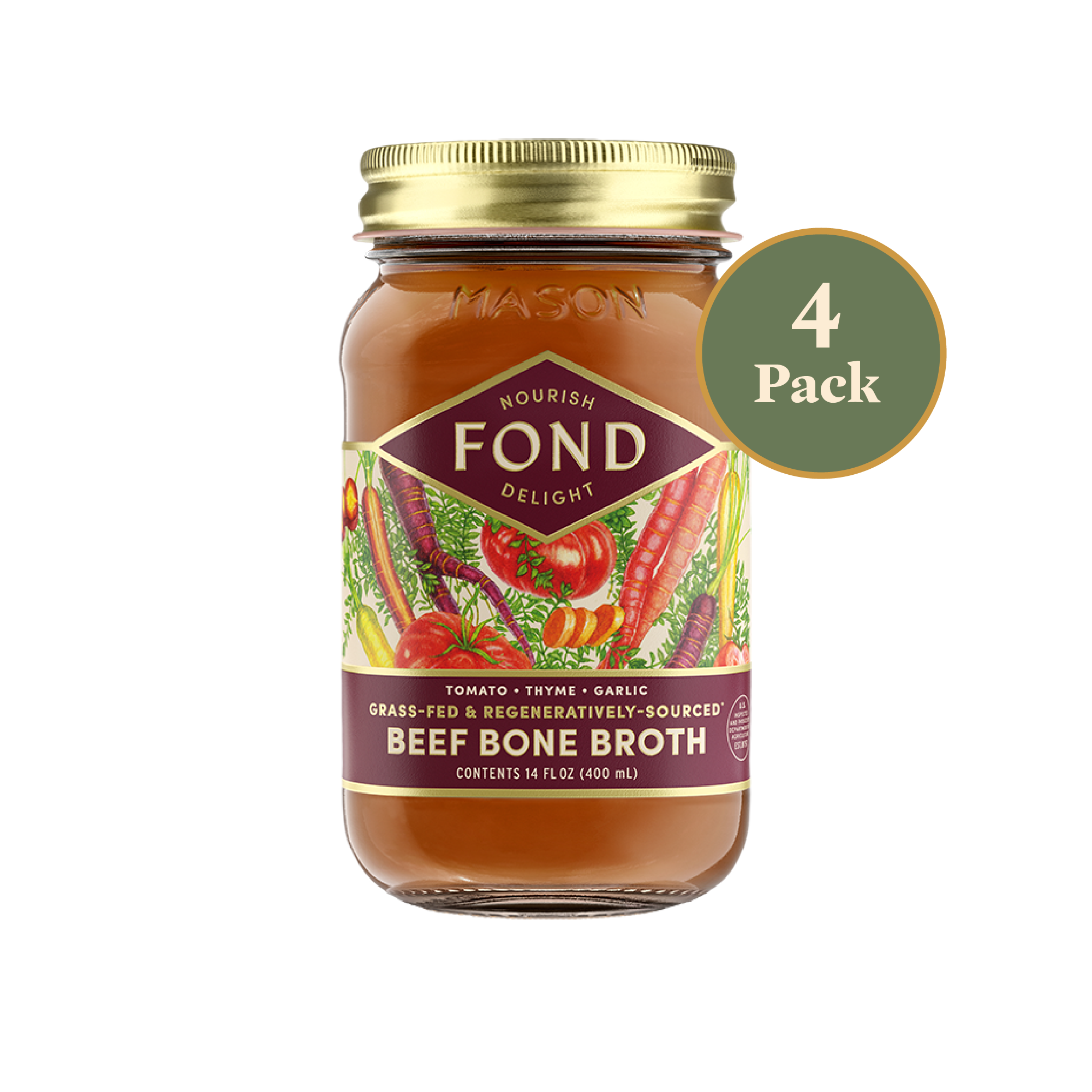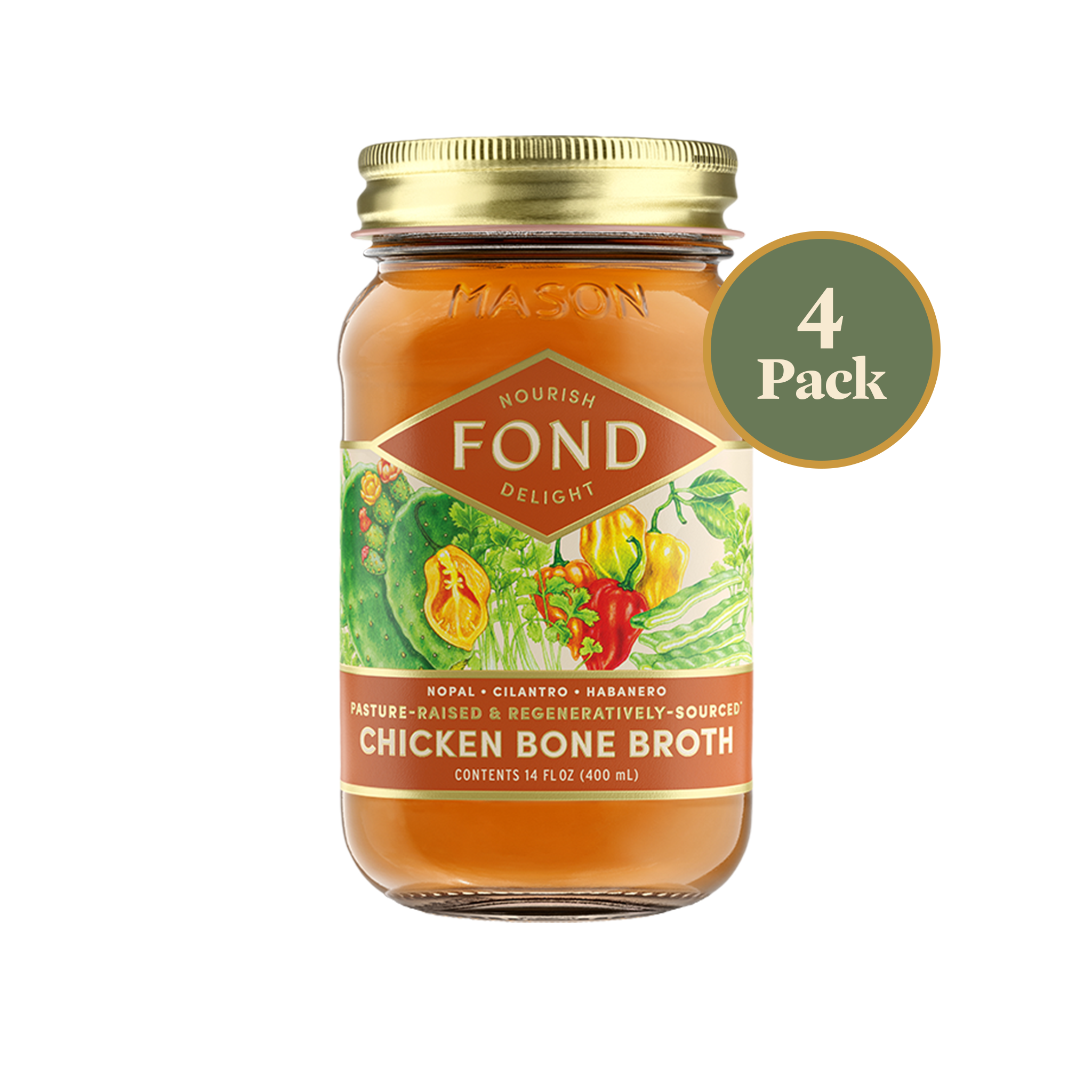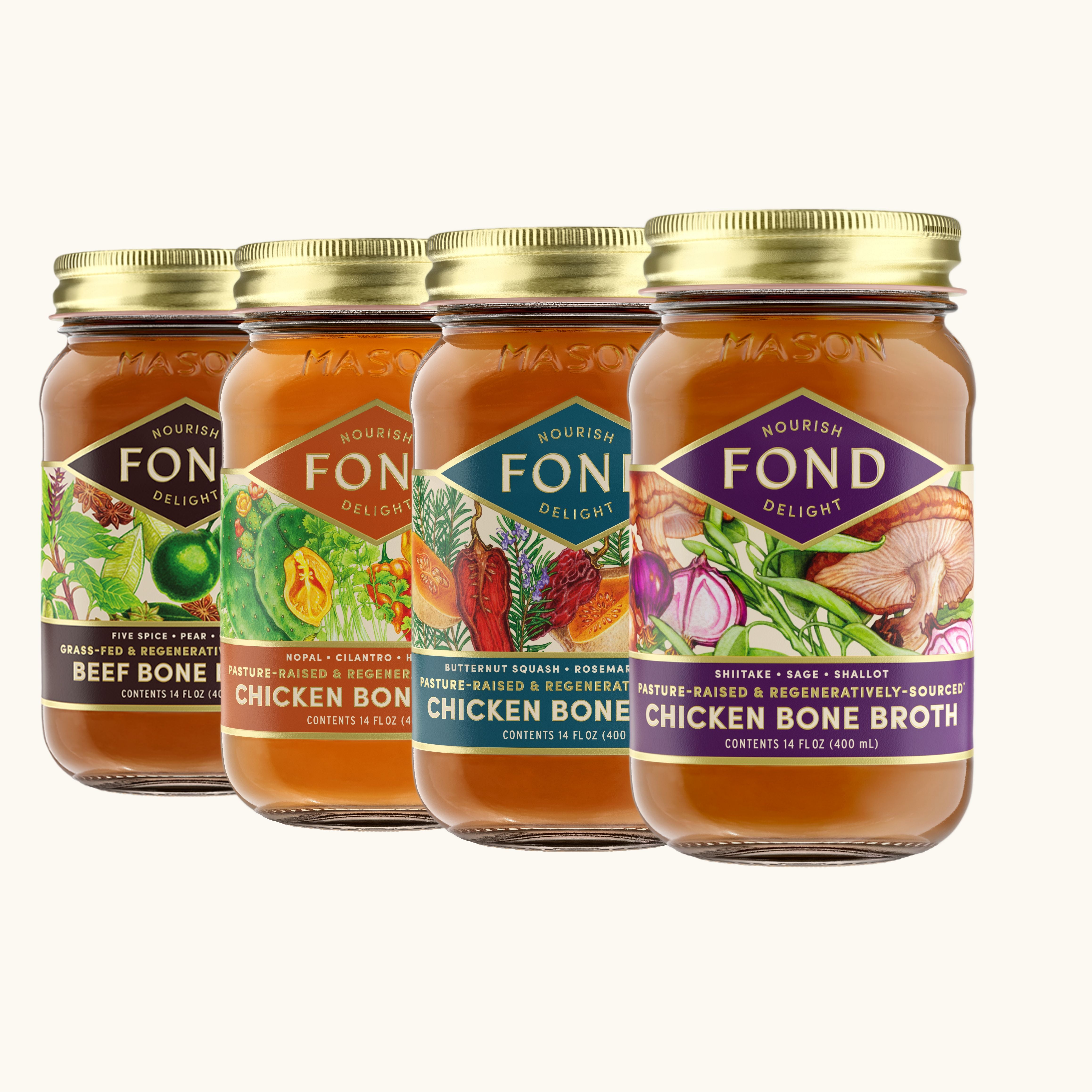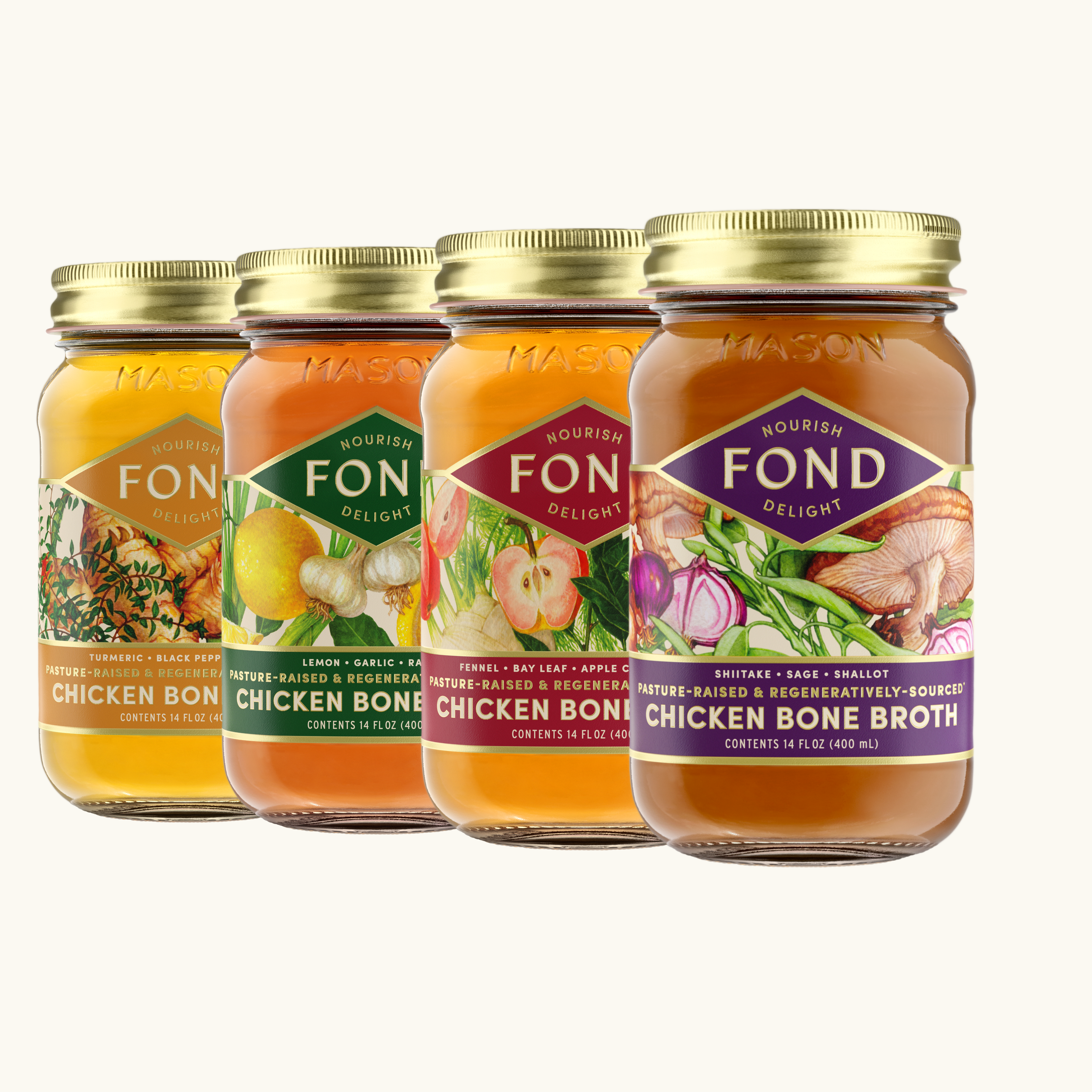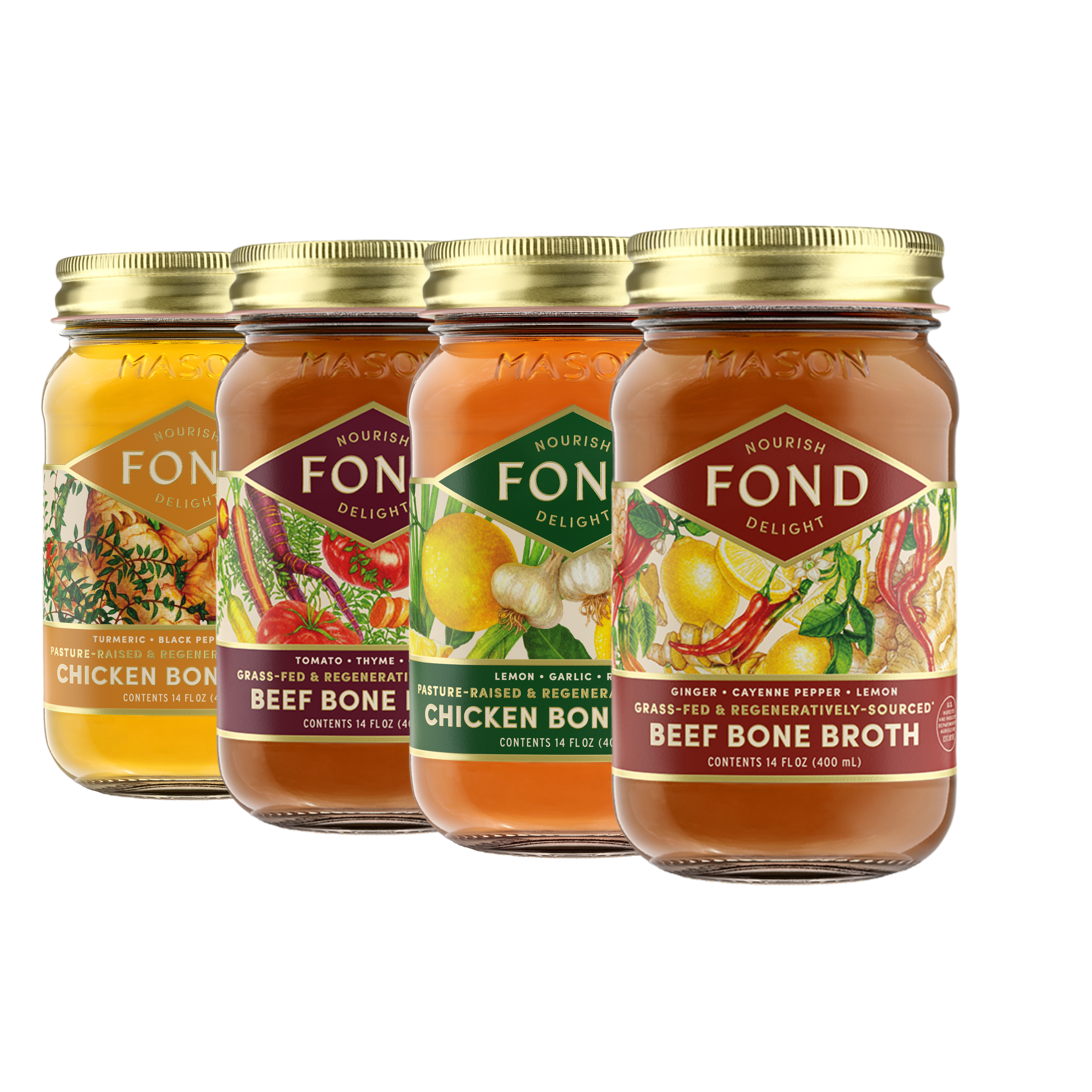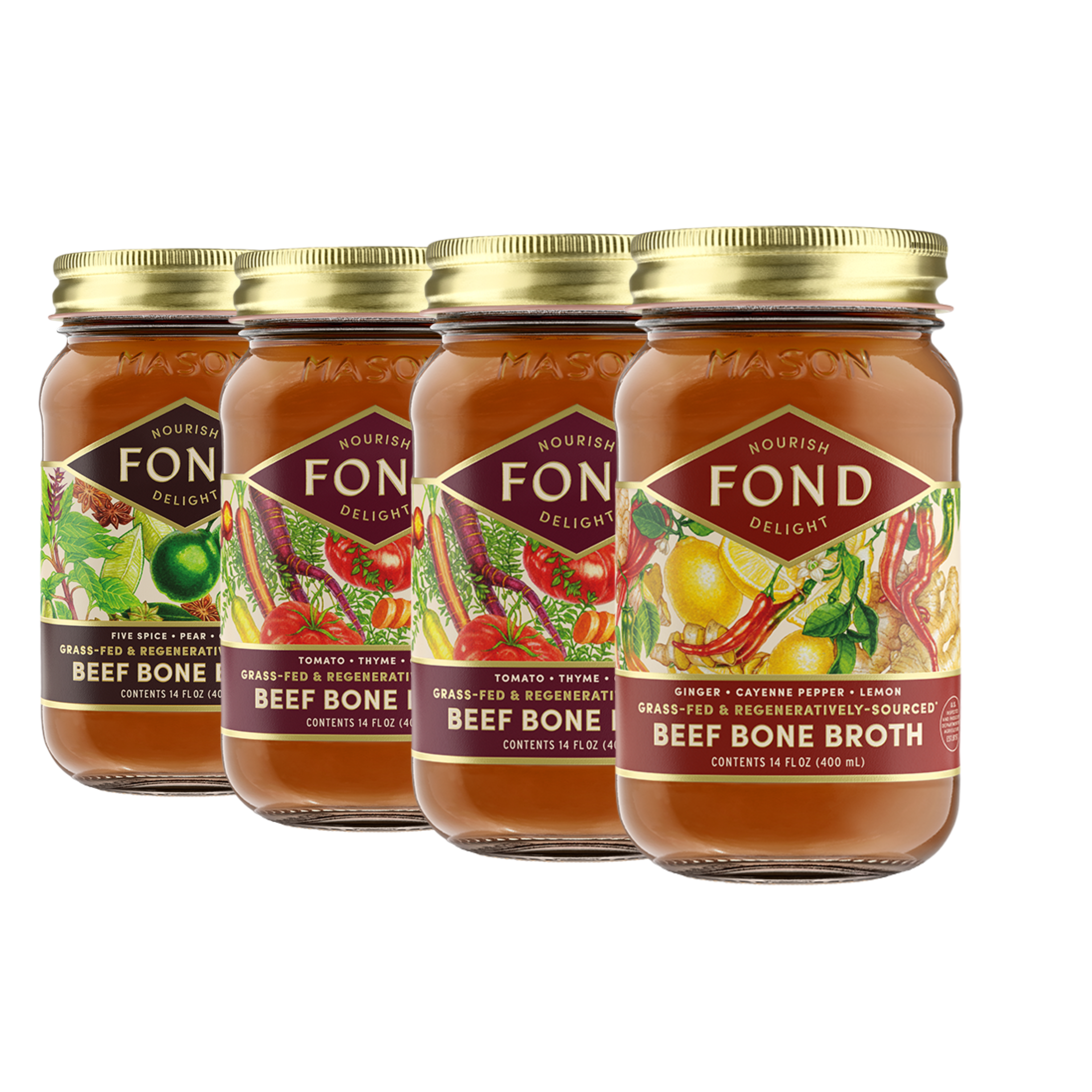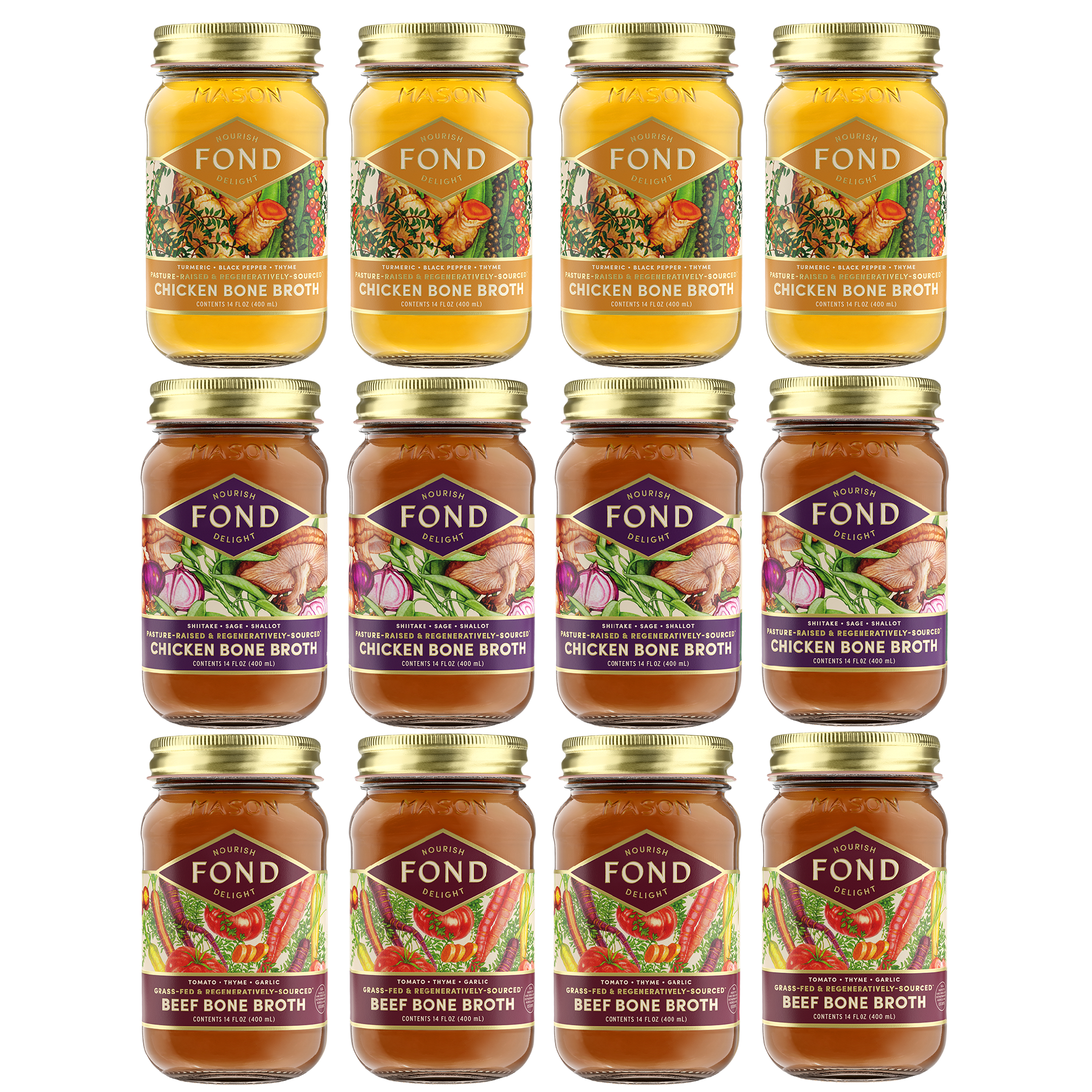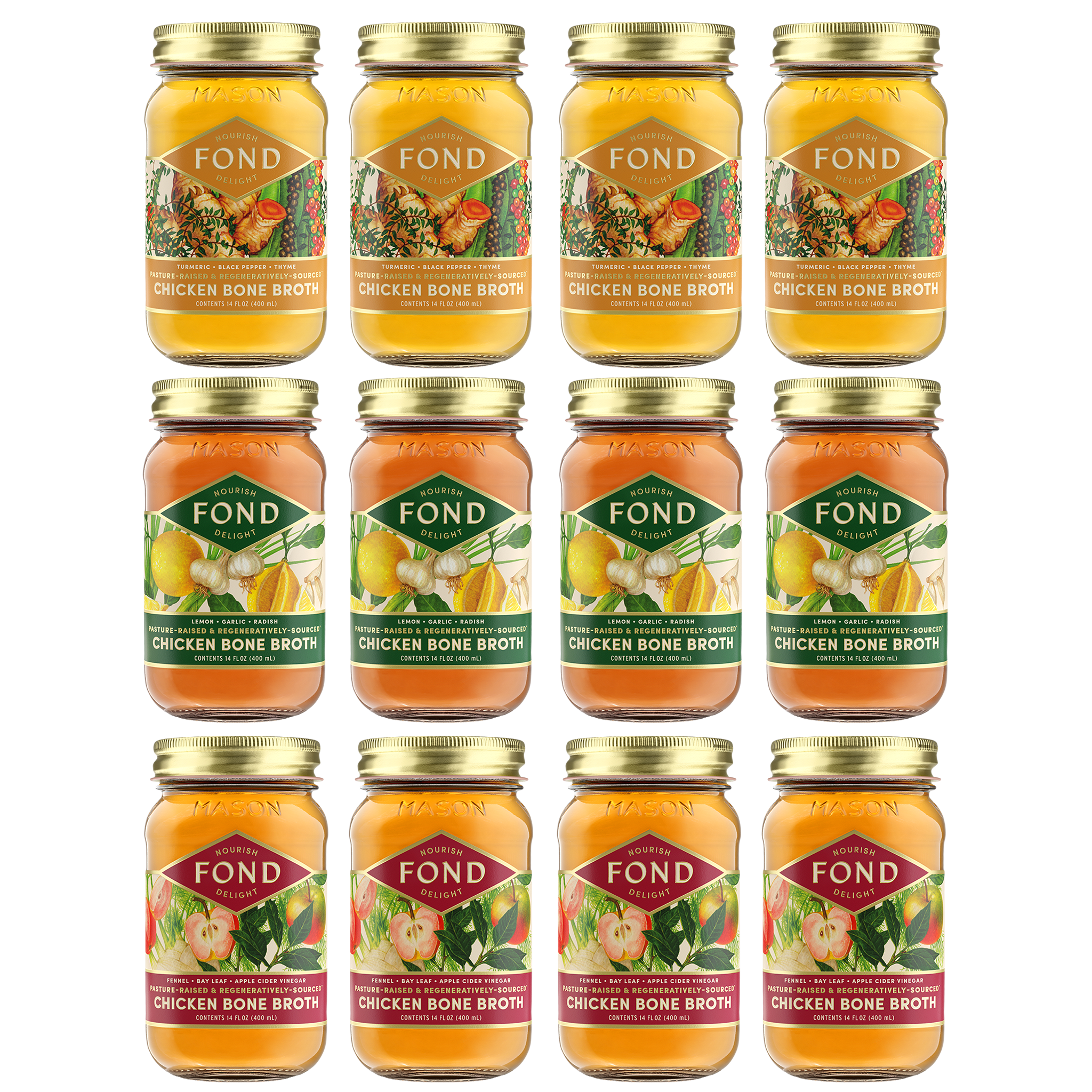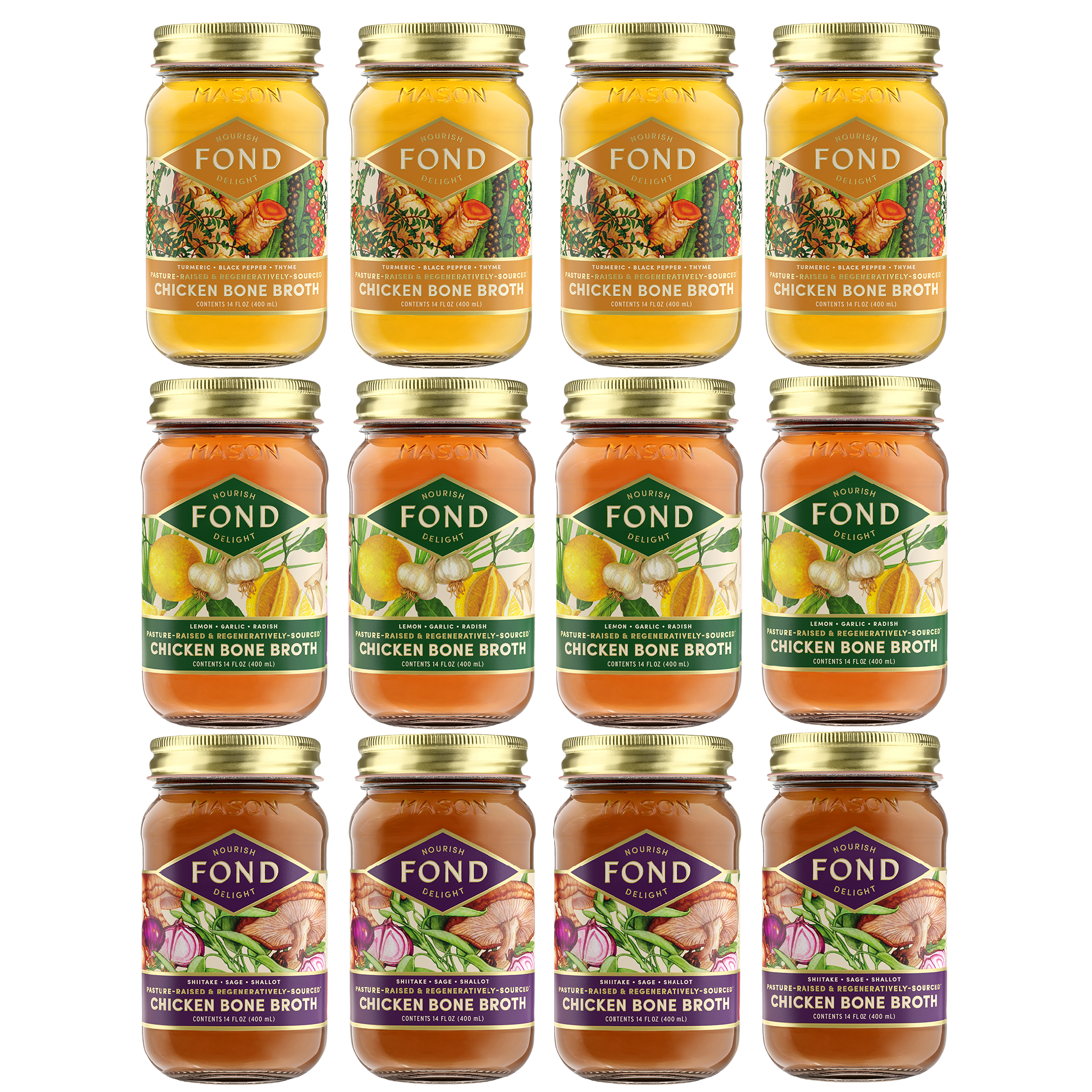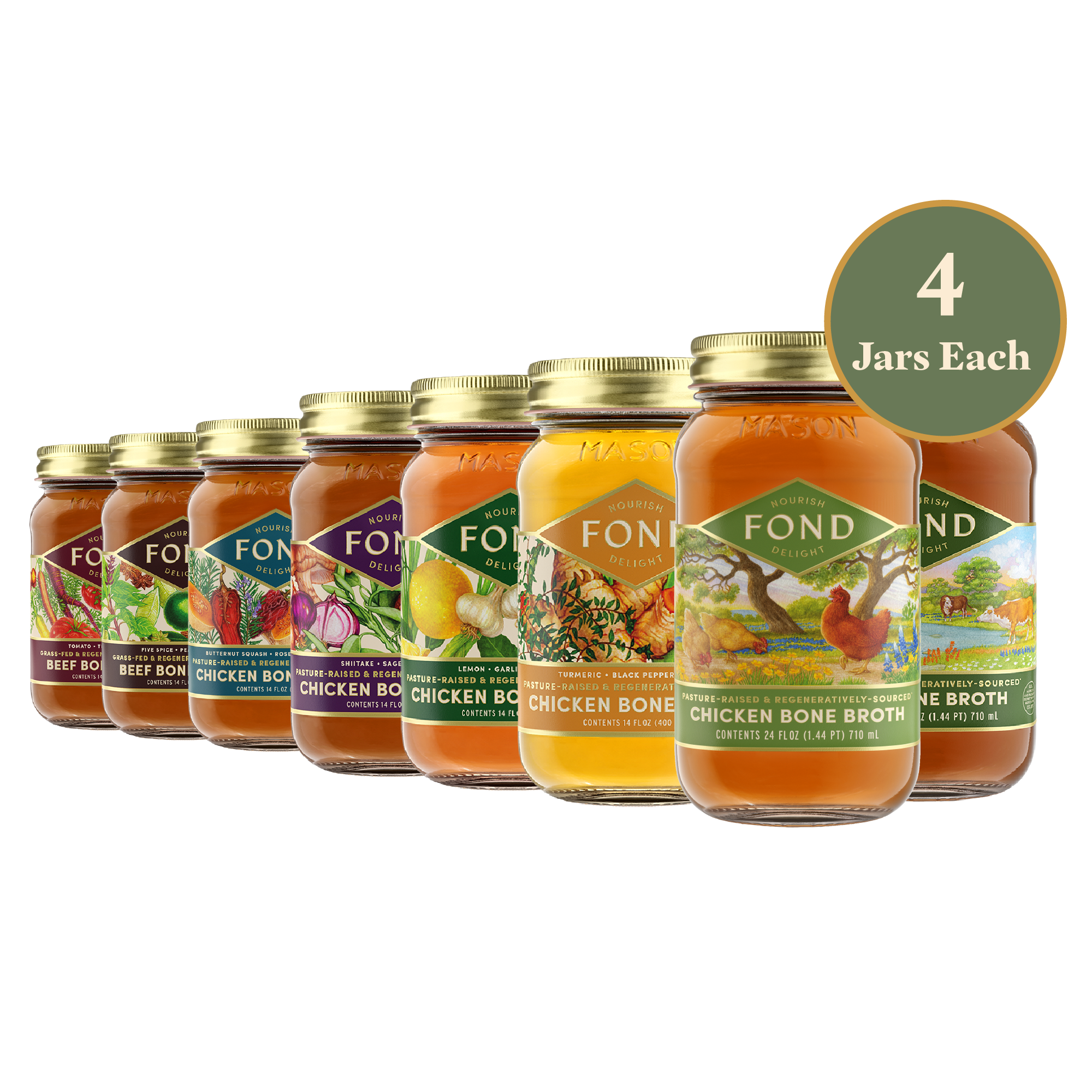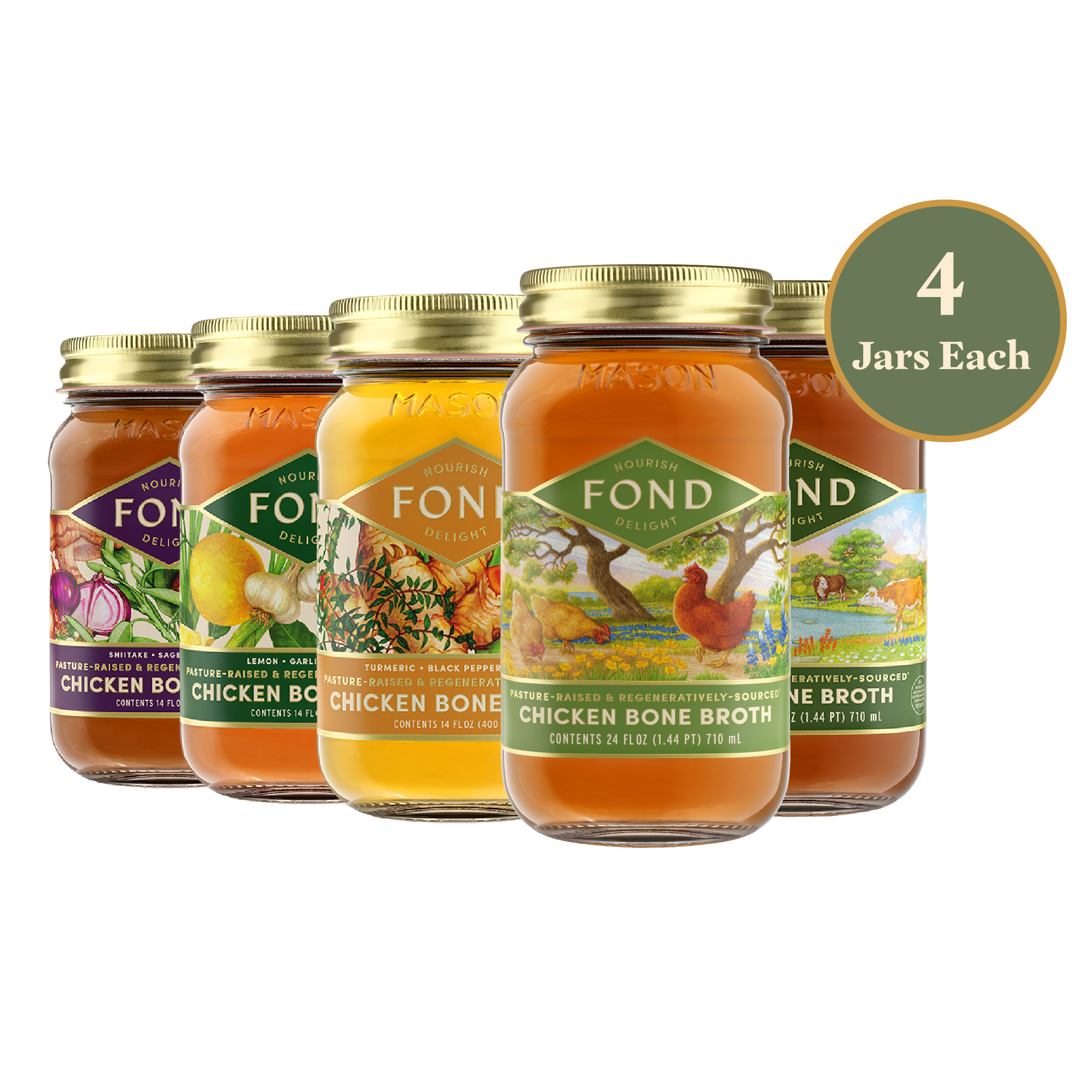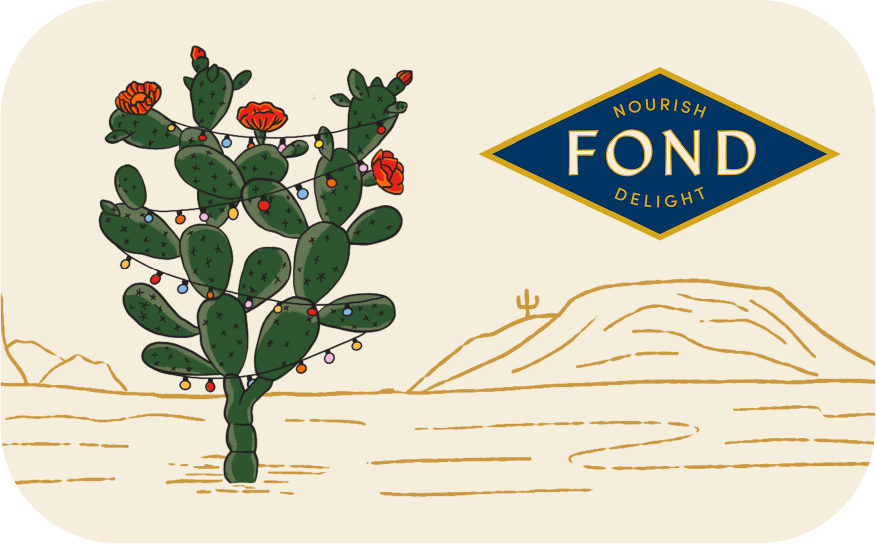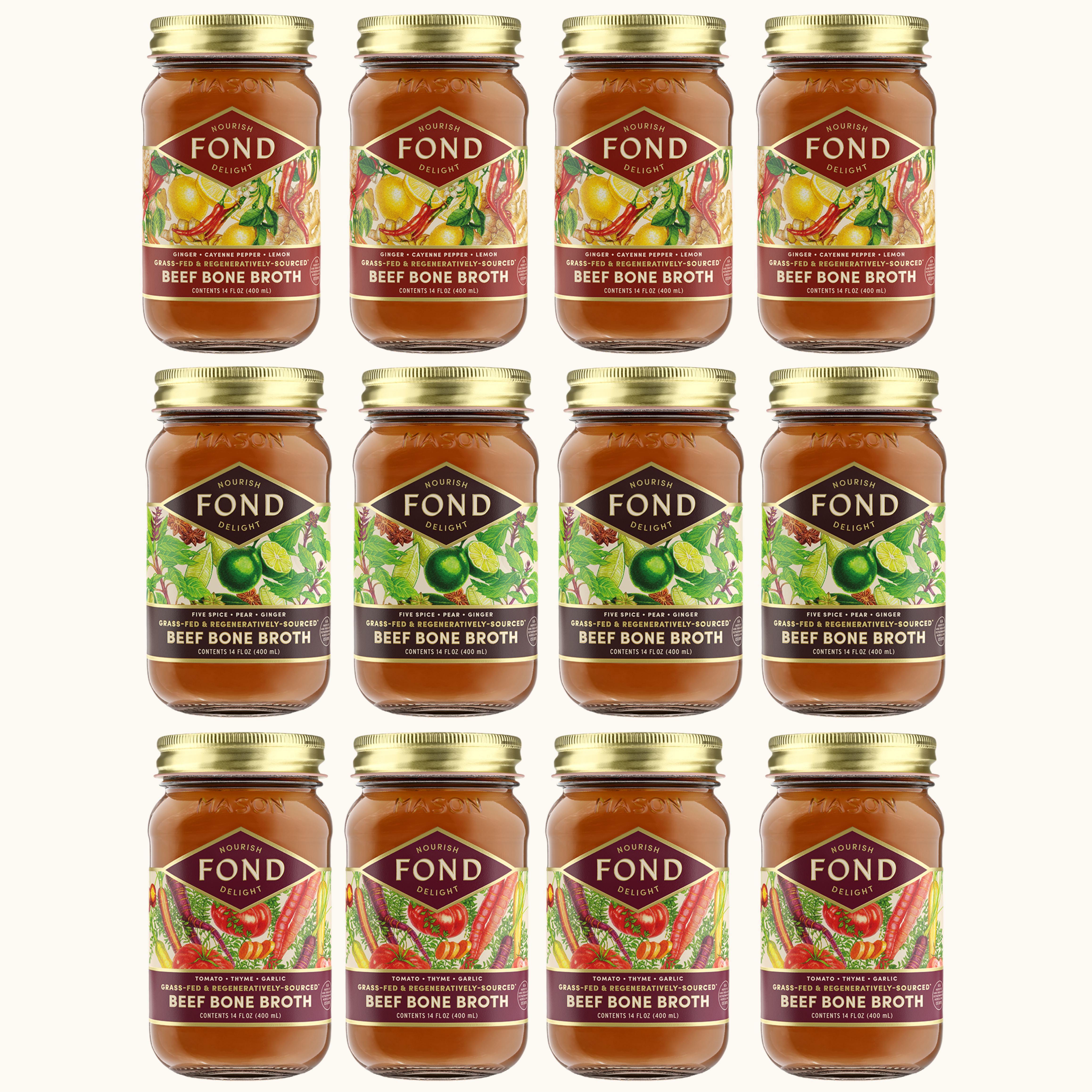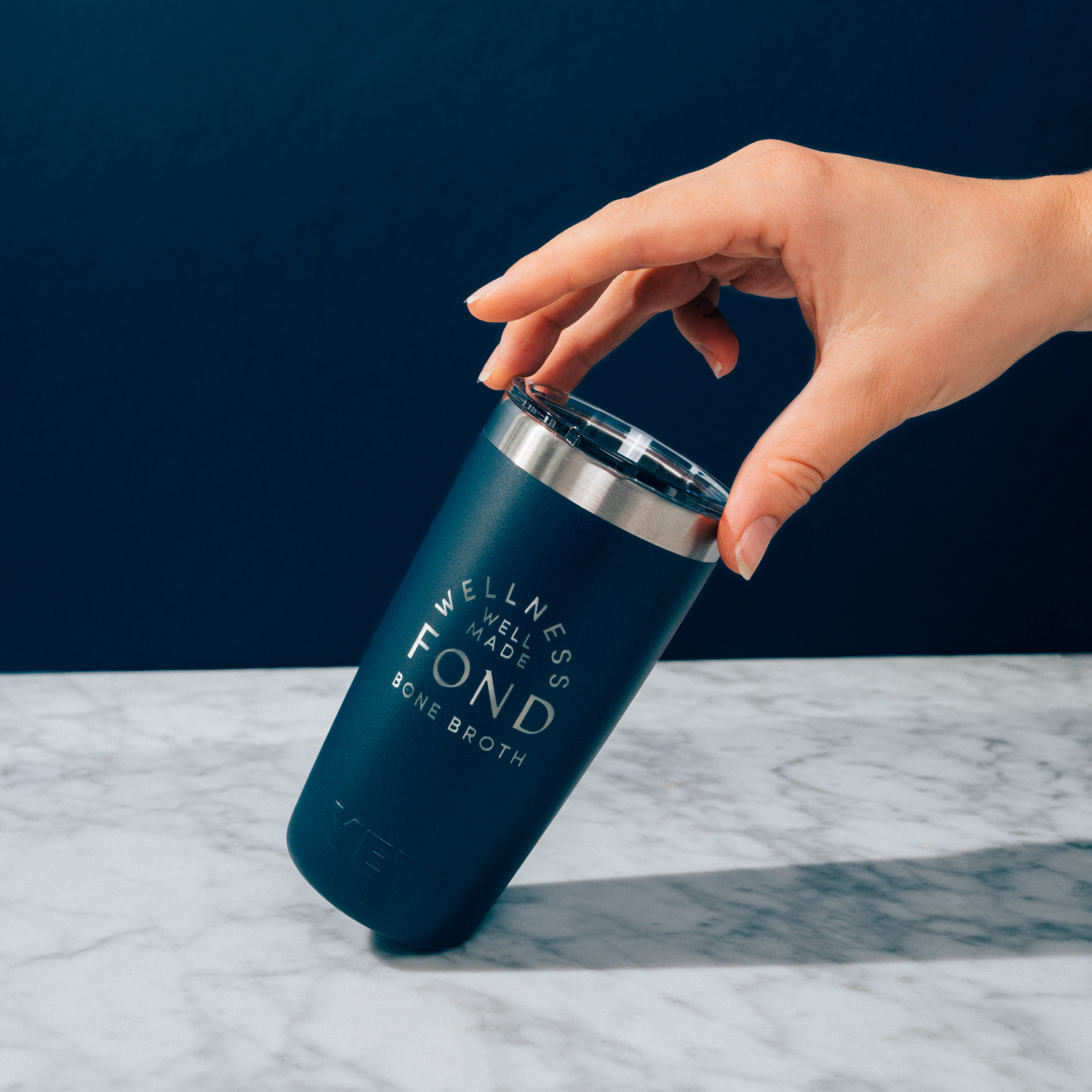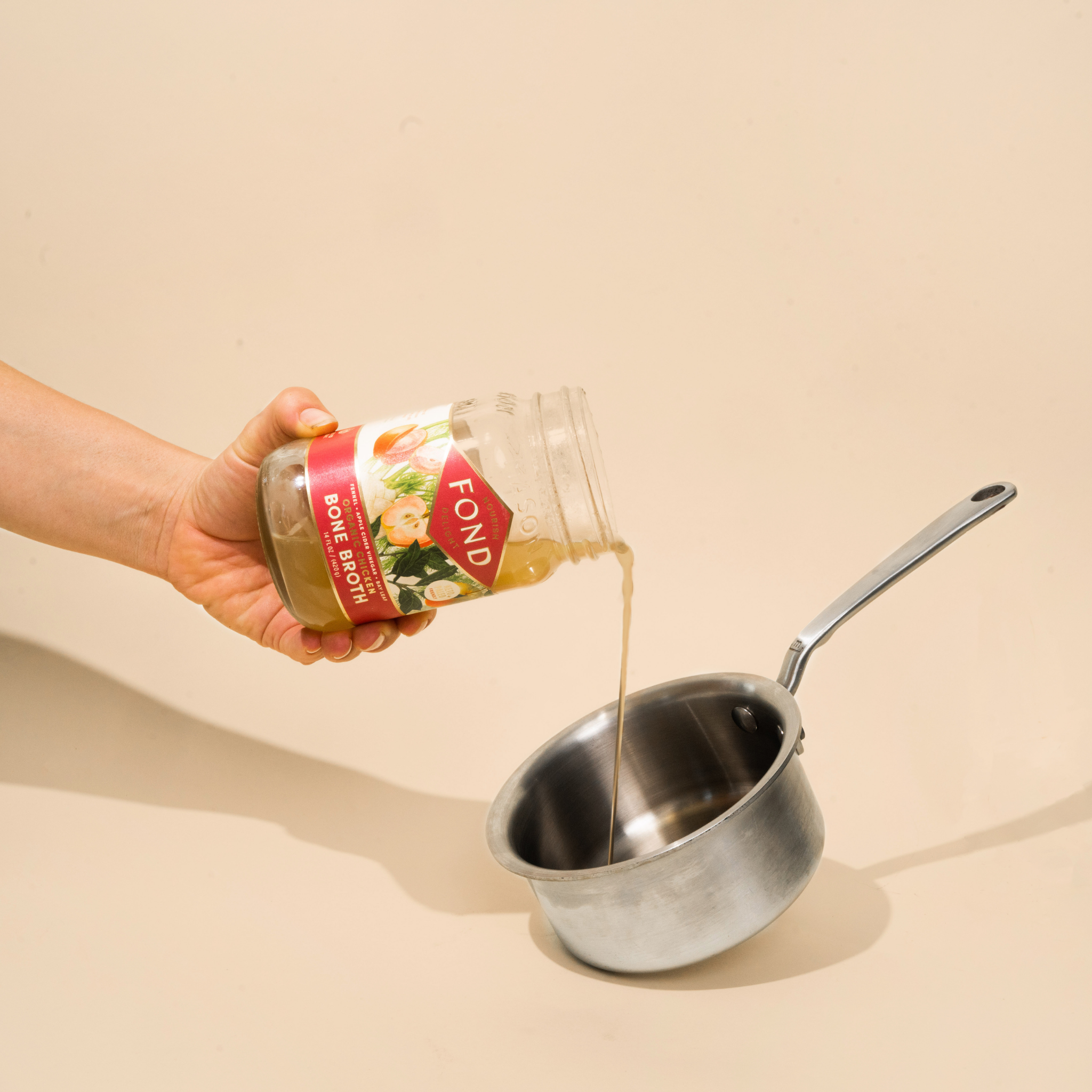Here at FOND, two of our true passions are sustainability and high-quality ingredients, everywhere from our bone broth brewing process to our shipments that arrive at your door. Though we touched on this topic briefly in our keto deep-dive, we were shocked to realize we’ve never done a full blog post on it!
Today, we’re sharing the details on what our sourcing looks like now, but also what we’re aiming for in the near future, as well as why opting for the highest-quality ingredients matters.
But first - a little primer about FOND! We make really delicious bone broth tonics (we’re not just saying that, it’s true!) that are truly food-as-medicine. We start with a base broth made up of chicken feet, backs, and necks (more gelatin this way!) and veggies. Then we infuse a variety of fresh, organic herbs into to impart the unique, delicious flavors that our broths are known for. And our process, from brew to packaging, is 100% plastic-free. Even our packaging is 100% recyclable or biodegradable.
Our veggies and herbs
Did you know that a lot of ready-made bone broths use dried herbs? Not us! We always use fresh herbs in our infusions. We want our broths to taste just as they would if you pulled out all the stops in your own kitchen. And to do one better, we only use organic herbs. It’s the same story with the carrots and celery in our base broth - always organic, always fresh.
We think you can tell the difference when you taste our tonics. We opt for organic veggies and herbs because organic is a heavily regulated certification that greatly limits the amount of pesticides that can be used during the growing process.
Our animal bones
When it comes to sourcing our chicken and beef bones, we’re adamant about buying from farmers doing things in a way that supports the animals, the farmers themselves, and the environment. An added bonus - this type of farming supports our health, too. Right now, all of our chicken is 100% organic and free-range, free to roam on pasture and spend time outside. Our beef is 100% grass-fed and grass-finished, raised on regenerative farms.
We have big goals, though, and are excitedly planning out the next few months. We’ve got some big surprises and new product launches up our sleeves. One of the things we’re most excited about, though, is being able to slowly move towards regenerative organic sourcing. We’ve sorted through a lot of different certifications, and we think that regenerative agriculture is truly the best path forward.
What is regenerative agriculture?
While pasture-raised meats alone are a fantastic choice, both for our health and the health of the environment, regenerative agriculture takes things a step further. This approach is focused on conservation and rehabilitation of existing lands, both for plant and animal farming. It focuses not only on the plants and animals themselves, but also on the biodiversity of the entire ecosystem. Regenerative agriculture has goals of topsoil regeneration, increasing biodiversity, improving the water cycle, strengthening the health of the soil, and sequestering carbon. That’s right, regeneratively raised animals can actually sequester carbon, meaning this type of farming can pull carbon from the atmosphere and put it back in the soil. And it doesn’t stop with animals. By farming vegetables using methods like cover crops, crop rotation, reduction of synthetic inputs, and conservation tillage, we see positive climate impacts, too.
Why sustainable ingredients matter
If we’re being honest, our current farming system in the US needs a lot of work. It’s played a role in the climate change we’re experiencing now, but it can also be a part of the solution.
There is literally hope right beneath us, in the soil’s natural ability to sequester carbon. Here’s more, straight from Rodale’s Regenerative Organic Agriculture white paper:
“The solution is farming. Not just business-as-usual industrial farming, but farming like the earth matters. Farming like water and soil and land matter. Farming like clean air matters. Farming like human health, animal health and ecosystem health matters. Farming in a way that restores and even improves our soil’s natural ability to hold carbon. This kind of farming is called regenerative organic agriculture and it is the short-term solution to climate change that we need to implement today.
Simply put, recent data from farming systems and pasture trials show that we could sequester more than 100% of current annual CO2 emissions with a switch to widely available and inexpensive management practices.”
We want to do our part to help the climate, help animals, and improve our health. Stay tuned for exciting updates on this front very, very soon!
To learn more about regenerative agriculture, here are a few of our favorite resources:







